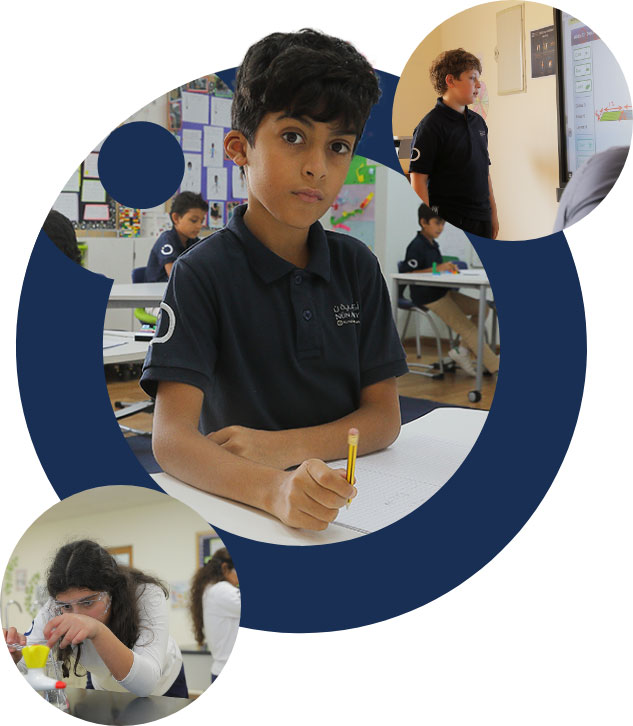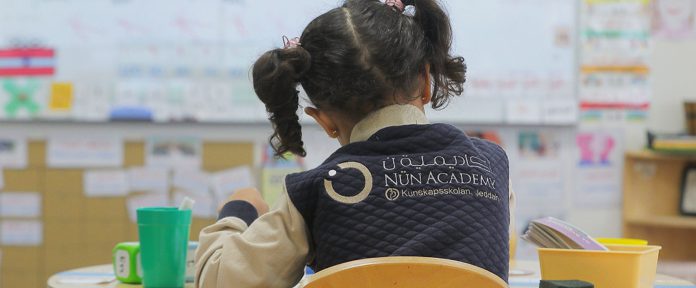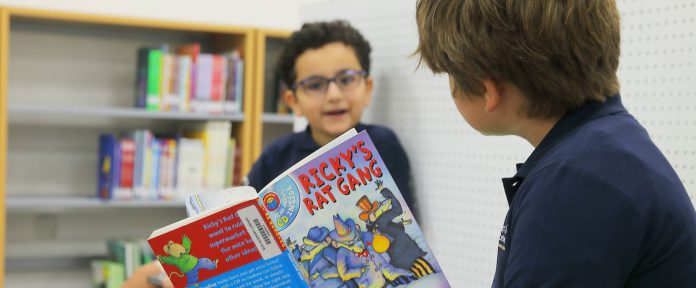Coaching at Nün
The coaching structure plays a decisive role in making students successful. Through individual coaching, students learn to set realistic yet challenging learning goals, use various strategies to achieve them and then reflect on their learning process. Personal coaching is not limited to scheduled sessions but is a continuous dialogue between the student and the coach, characterised by closeness and concern. The coach is responsible for ensuring that the students assume the responsibility they can manage — and no more.
Even our youngest students in Early Years meet with coaches who guide them in learning. The structure and content of these sessions vary depending on the student’s age and maturity. Initially, they receive help and support with strategies to accomplish personal planning and understand the working methods. The focus gradually shifts to reflections on the student’s learning process, where the students reflect on their goals, work, strategies and results. As students deepen their studies, they assume greater responsibility and increased ownership of their learning.
Personal tutorials/coaching sessions:
Students have a scheduled discussion with their coach/es every week where the student and coach discuss the student’s progress towards goals. Reflecting on their learning process and personal development is a central part of the student’s discussion with the coach.
What is Personalized Learning?
Personalised learning is an alternative to the traditional approach to education in which all students receive the same type of instruction, assignments and assessments. In contrast, schools that use the KED Program offer a program tailored to the needs and abilities of each student. Personalised Learning is the primary purpose of the KED program.
At a Kunskapsskolan school, Personalised Learning is a process through which self-regulated learners take responsibility and ownership for their learning and have the skills to personalise the learning for themselves. They follow a common curriculum but use personalised learning strategies to reach their goals. The KED program offers students the tools to personalise their learning, providing they have developed a range of Self-Regulated Learning (SRL) skills. Therefore, it is pivotal that the KED program provides students with the opportunity to develop these skills over time. This approach is also in line with two of our Future Skills (‘Learn to Learn’ and ‘Take Action’).
Personalised Goals and Strategies
The KED program puts the individual student at the centre. The teacher is the student’s coach, guiding each student in the learning process and reaching their goals. Resources in time, facilities, curriculum, and learning material are organised to support that process. Step by step, our students learn their capabilities and how to stretch them. Setting goals, choosing strategies, doing the job, assessing the result and drawing the conclusions for the next step all become part of the learning, just as natural as all the facts and knowledge achieved.
Creating Meaning
Setting up individual goals and strategies to reach them creates meaning and motivation in school. It is much more interesting going somewhere if you know where you are going, how and why you will get there. Seeing the result and your progress step by step is satisfying and motivates learning more.
Digital Citizenship
Our Digital Citizenship program is based on the well-known Common Sense Media curriculum that helps students learn the responsible, ethical and secure use of information, communication technology and social media. According to the International Society of Technology Education (ISTE), Digital citizenship is about being active, informed and empathetic citizens who use technology to solve problems and be a force for good in both physical and virtual communities. Good digital citizens can determine the validity of online sources of information and engage respectfully online with people who hold different beliefs than theirs. They make informed decisions about how to prioritize their time online and off. Good digital citizens see possibilities instead of problems, and opportunities instead of risks as they curate a positive and effective digital footprint.
We use this definition to guide our curriculum and ensure that our students will learn to be good digital citizens and competent users of technology and recognize the rights, responsibilities and opportunities of living, learning and working in an interconnected digital world.
In addition, we integrate lessons in digital fluency across the curriculum. Students use digital tools to:
- Find and organise information to create new learning and products.
- Collaborate with others within and beyond the school community to solve real-world problems.
- Use a design thinking model to explore issues and solve real-world problems.
- Contribute positively, ethically and responsibly in a digital environment.
- Understand how digital systems work and contribute to new ways of doing things.











